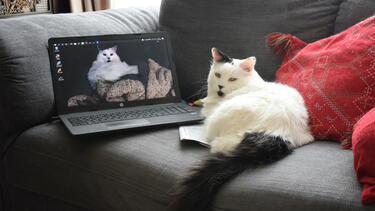Amy Wrzesniewski
To Be Happier at Work, Think Flexibly about Your Job—and Yourself
In a new paper, Yale SOM’s Amy Wrzesniewski and her co-authors find that well-being can be enhanced by pairing a shift in your job mindset with changes in how you think about your own strengths and weaknesses.

What Happens When Couples Disagree about the Meaning of Work?
In a new study, Prof. Amy Wrzesniewski and her co-author found that having a partner with a different orientation toward their career lowers a person’s chances of reemployment after leaving a job.

Video: Identifying with a Team Helps Prevent Stress and Burnout among Healthcare Workers
A Yale study conducted in the early days of the COVID-19 pandemic found that feeling like part of a team reduced reported stress and burnout—an insight with implications for how any kind of organization can weather a crisis.

How to Keep Your Sense of Purpose While Working Remotely
Yale SOM’s Amy Wrzesniewski, an expert in how people find meaning in their jobs, says that working remotely can diminish our sense of community and structure—and offers suggestions for staying anchored.

The Agony and Ecstasy of the Gig Economy
Should the so-called gig economy be called the roller coaster economy? Yale SOM's Amy Wrzesniewski, an expert in how we experience work, investigated the lives of independent workers and found that they experience dramatic emotional highs and lows.

When Is One Motivation Better than Two?
Laboratory experiments have suggested that, counterintuitively, having both an internal motivation for completing a task and an external reward makes performance weaker. A study by Yale SOM’s Amy Wrzesniewski tested this idea in the real world, by examining how the motivations of West Point cadets affected their performance. The results have strong implications for how leaders can get the best performance from their organizations.
The Secret of Effective Motivation
What kinds of motives are most conducive to success? In a New York Times op-ed, Professor Amy Wrzesniewski and coauthor Barry Schwartz discuss their research looking at the motives of new West Point cadets and how they relate to success as Army officers.